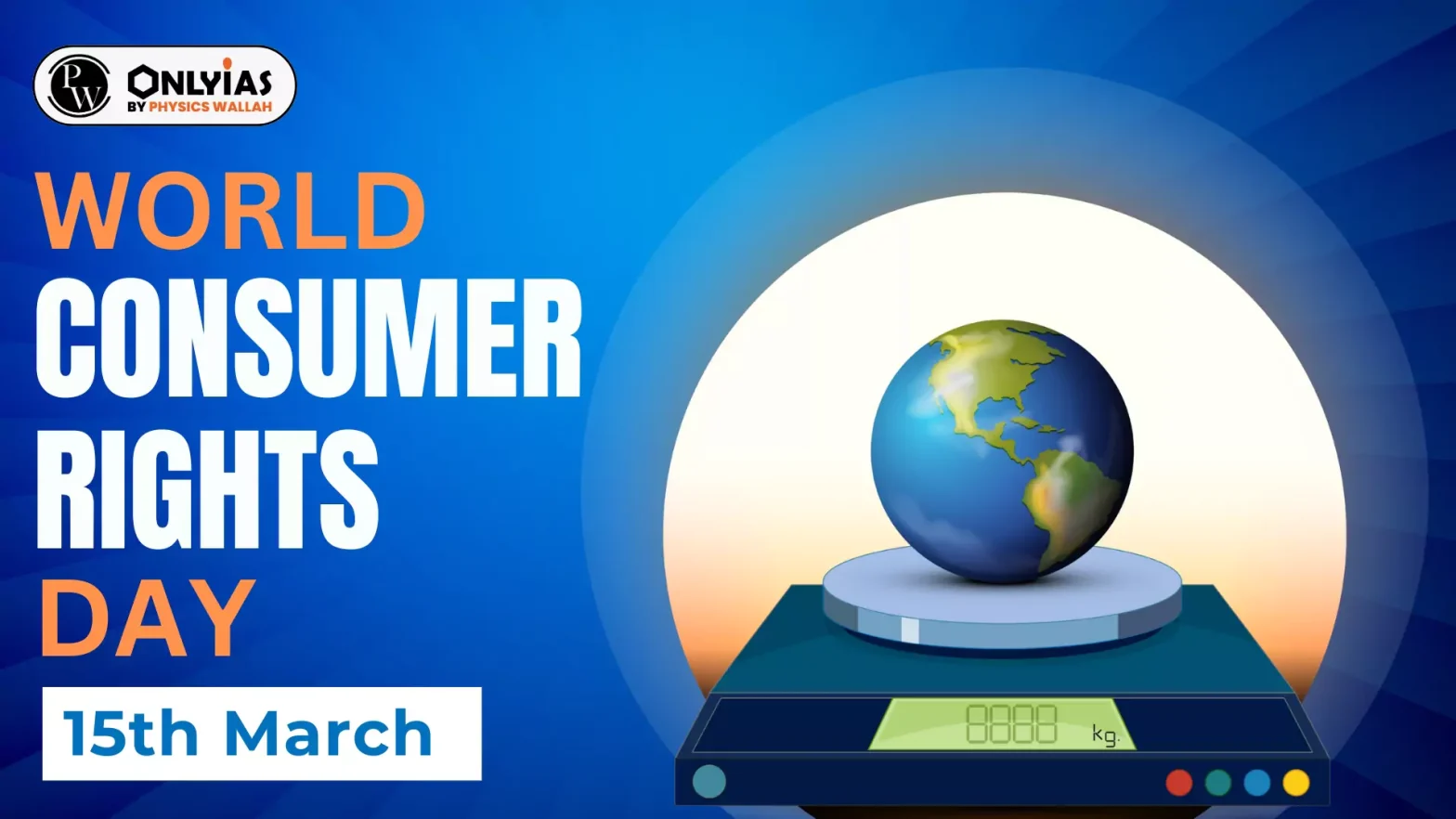
World Consumer Rights Day is an annual event observed on March 15th to raise global awareness about consumer rights and needs. This day was established in 1983, and it signifies the importance of fair treatment and protection for consumers worldwide. The date commemorates U.S. President John F. Kennedy’s 1962 speech to Congress. He articulated four fundamental consumer rights: the right to safety, the right to be informed, the right to choose, and the right to be heard.
World Consumer Rights Day is observed on March 15 every year to highlight the rights of consumers and promote fair trade practices. It serves as a global event to raise awareness about consumer rights and protection laws that safeguard individuals from unethical business practices. The day was inspired by former U.S. President John F. Kennedy’s address to Congress on consumer rights in 1962.
| World Consumer Rights Day | |
|---|---|
| Event | Details |
| Date | March 15, 2025 |
| Established in | 1983 |
| Theme | A Just Transition to Sustainable Lifestyles |
| Observed By | Globally, including India |
| Purpose | To raise awareness about consumer rights and protection |
| Significance | Ensures fair trade practices and legal protection for consumers |
| Established By | Consumers International |
World Consumer Rights Day promotes consumer protection and highlights consumers’ power. It serves as a platform for consumers to demand their rights and for organizations to advocate for fair trade practices. Each year, the global consumer movement and other influential stakeholders celebrate this day, raising awareness of consumer rights, protection, and empowerment worldwide.
For 2025, the theme is “A Just Transition to Sustainable Lifestyles.” This theme reflects the urgent need to make sustainable and healthy lifestyle choices available, accessible, and affordable for all consumers while ensuring that these transitions uphold people’s basic rights and needs.
In India, consumer rights are protected under the Consumer Protection Act, 2019. This Act replaces the earlier Consumer Protection Act of 1986 and introduces several new provisions to strengthen consumer rights.
The Consumer Protection Act ensures that consumers have specific rights to safeguard their interests. Below is a table summarizing these fundamental rights:
| Consumer Rights Enshrined in the Act | |
| Consumer Right | Description |
| Right to Safety | Protection against hazardous goods and services. |
| Right to Be Informed | Access to accurate information about products and services. |
| Right to Choose | Access to a variety of goods and services at competitive prices. |
| Right to Be Heard | Consumers’ interests will receive due consideration at appropriate forums. |
| Right to Seek Redressal | Right to seek compensation for unfair trade practices or exploitation. |
| Right to Consumer Education | Knowledge and skill to make informed choices. |
India actively participates in World Consumer Rights Day through various initiatives:
Expansion of E-Daakhil for Online Consumer Complaints: Launched on 7th September 2020 by the National Consumer Dispute Redressal Commission, E-Daakhil is an online platform that provides a fast, paperless, and hassle-free way for consumers to file complaints without physical visits. To further enhance the process, the government introduced e-Jagriti, streamlining case filing, tracking, and management for quicker resolutions.
Enhancements to the National Consumer Helpline (NCH): The revamped NCH 2.0 now includes AI-powered Speech Recognition, a Translation System, and a Multilingual Chatbot. Integrated with regulatory bodies like FSSAI and BIS, it has expanded multilingual support in 17 languages, handling over 1.55 lakh calls in December 2024. Consumers can register complaints via the 1915 toll-free number, WhatsApp, SMS, email, or mobile apps.
Jaago Grahak Jaago Portal & Mobile App: The Jaago Grahak Jaago initiative provides real-time e-commerce safety alerts, helping consumers identify unsafe URLs and stay informed about their rights in the digital marketplace.
Strengthening Consumer Protection in E-Commerce: New E-Commerce Guidelines under the Consumer Protection (E-Commerce) Rules, 2020 outline the responsibilities of e-commerce platforms. Additionally, the CCPA Guidelines for Prevention and Regulation of Dark Patterns, 2023, regulate 13 deceptive e-commerce practices.
BIS Draft Standard for E-Commerce Self-Governance: The BIS draft standard establishes fair, transparent guidelines for online marketplaces, covering pre-transaction, contract formation, and post-transaction phases. It mandates clear product disclosures, secure transactions, anti-counterfeiting measures, and robust grievance redressal mechanisms to ensure consumer protection and ethical business practices.
India has been proactive in enhancing consumer protection measures:
Ready to boost your UPSC 2025 preparation? Join PW’s UPSC online courses today!

<div class="new-fform">
</div>